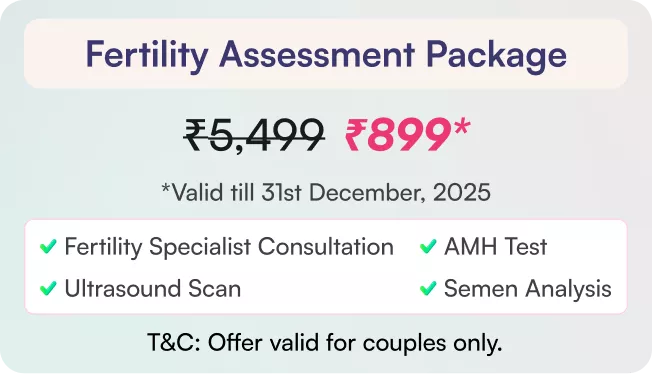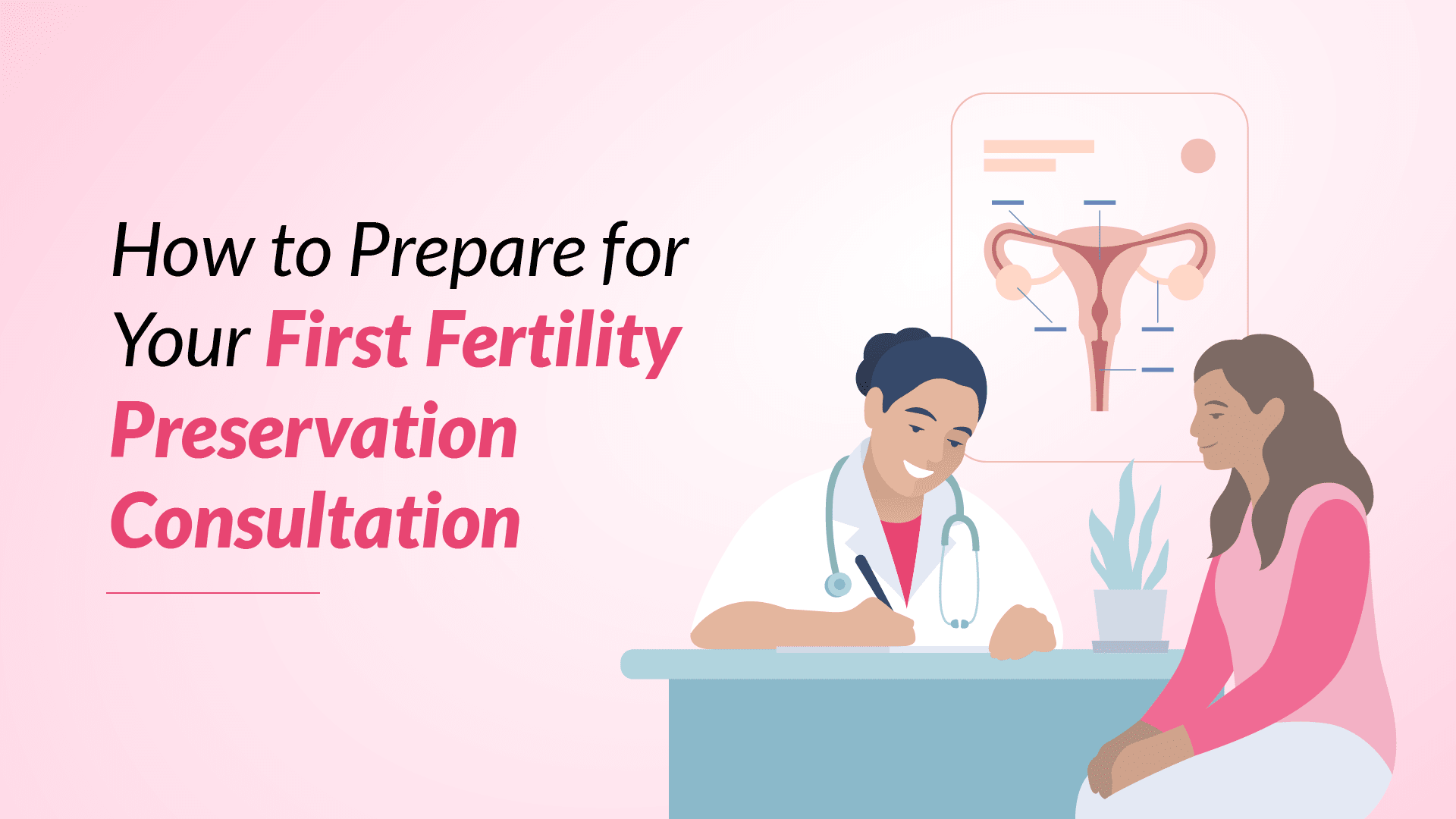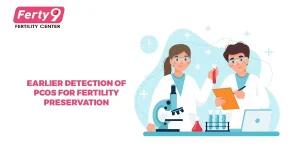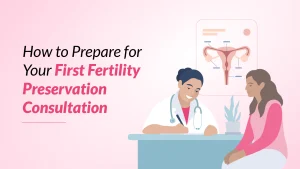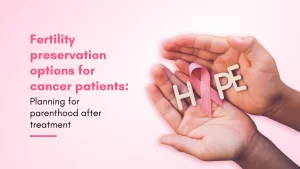Thinking about fertility preservation may feel overwhelming, especially if it’s your first time exploring this option and unsure what to expect. Many people think about fertility preservation, whether it’s because of a medical condition like cancer or to keep future family-building possibilities open. The rising demand for fertility preservation in cancer patients shows that more people are opting to freeze their eggs, sperm, or embryos for future use.
With medical advancements today, a fertility preservation procedure is not only possible but can also be a sensible option for those looking to preserve their chances of having a family later on. Let’s walk through what you need to know as you prepare for your first fertility consultation.
When to Consider a Fertility Preservation?
Deciding on fertility preservation services depends on individual goals and health conditions. People consider fertility preservation for a range of reasons, including upcoming cancer treatments, medical conditions that might impact fertility, or personal preferences about family planning. If you’re considering egg freezing as a fertility preservation option, understanding your current fertility status can provide a clearer understanding of the steps involved.
Most patients wonder about the right age for fertility preservation. For cancer patients, egg freezing can be done at any age to protect your fertility before starting cancer treatments. For social freezing, the ideal age to consider starting is anytime after 22 years, with the best time to store eggs before 30.
Consulting with a fertility expert early can help you understand your options and assess what method suits you best, making this first step in fertility consultation crucial.
Researching Your Options
Preparation is key before any fertility appointment. There are multiple methods for fertility preservation, including egg or sperm freezing, embryo freezing, and tissue preservation. Look into each fertility preservation procedure to understand the basics. It’s also wise to check if your preferred clinic offers specific fertility preservation services and has experience with your unique situation, such as fertility preservation in female or male cancer patients.
Gathering Personal Medical History
A clear medical history is essential for any fertility procedure. When preparing for your first fertility appointment, gather information about your medical background, particularly any conditions affecting hormones, the reproductive system, or any prior treatments that might influence fertility. For patients facing cancer, understanding how treatments might impact fertility can be crucial. For example, fertility preservation in ovarian cancer patients may require a tailored approach, so having all medical records at hand will help your doctor develop an appropriate plan.
Preparing Questions for Your Doctor
It’s natural to have questions before your egg-freezing consultation or any other fertility preservation meeting. Your doctor will guide you through the basics, but preparing specific questions to ask your fertility doctor can make a significant difference in understanding the process.
A List of Questions for Your Doctor
Here are some questions to consider asking your doctor:
- What are the different methods of fertility preservation available, and which one do you recommend for me?
- What is the success rate for each method based on my age and health status?
- What are the potential risks and side effects associated with the procedures?
- What is the typical process for the fertility preservation procedure?
- How long does the entire fertility preservation process take?
- What are the costs associated with fertility preservation, and are there any hidden fees?
- Is fertility preservation covered by insurance? If so, what is included?
- How will my hormone levels be monitored during the process?
- What follow-up care or appointments will be necessary after the procedure?
- Can I talk to someone who has gone through the fertility preservation process?
- What lifestyle changes can I make to improve my chances of successful preservation?
- What happens to my preserved eggs/sperm/embryos in the long term?
- Are there any specific factors in my medical history that could affect the success of fertility preservation?
- What happens if I decide to pursue pregnancy after preservation?
- What emotional or psychological support options are available during this process?
Assessing Emotional Readiness
Starting a fertility preservation program is a big step, so it’s worth reflecting on your emotional readiness. The process involves procedures, possible side effects, and long-term planning. Talking to friends, family, or a counselor can be helpful as you consider this option. Being open about your concerns during the fertility consultation also helps your doctor understand and address any emotional factors that might be on your mind.
Financial Considerations
The cost of standard fertility preservation services can vary based on the chosen method and location. Factors like consultation fees, medication, storage fees for eggs or sperm, and follow-up visits can add up. Not all insurance plans cover fertility preservation, so it’s essential to confirm coverage and understand any additional costs before you begin. Some clinics also offer financial counseling, which can help you plan and make informed choices for your future.
Lifestyle Adjustments
Lifestyle plays an important role in preserving your fertility health. A few small changes can positively impact the preservation process, such as maintaining a balanced diet, managing stress, and staying active. Avoiding smoking and alcohol can also improve the quality of your eggs or sperm. Your doctor might recommend specific lifestyle adjustments based on your overall health and the fertility preservation method you choose.
What to Expect During the Consultation at Ferty9?
When you attend your consultation at Ferty9 Fertility Center, you’ll have a personalized discussion about fertility preservation options tailored to your needs. The team will review your medical history, guide you through the steps of the procedure, and explain each method in detail. If you’re considering female fertility preservation or male fertility preservation, the Ferty9 team will provide insights on each approach’s specifics, helping you understand the pathway fertility preservation offers for you.
During the visit, expect to discuss your fertility goals, medical history, and any preferences you have regarding the process. Your doctor will likely review various fertility preservation techniques, from preserving eggs for fertility to embryo and sperm freezing options, giving you a clear picture of the journey ahead.
Conclusion
Preparing for your first fertility preservation consultation may seem challenging, but it’s a crucial step toward understanding your options. By gathering the right information, asking questions, and preparing emotionally and financially, you’ll be well-prepared for the consultation. Ferty9 Fertility Center offers comprehensive fertility preservation services designed to provide support, guidance, and effective solutions for each patient’s needs. Taking the first step can make a significant difference in planning for your future.
